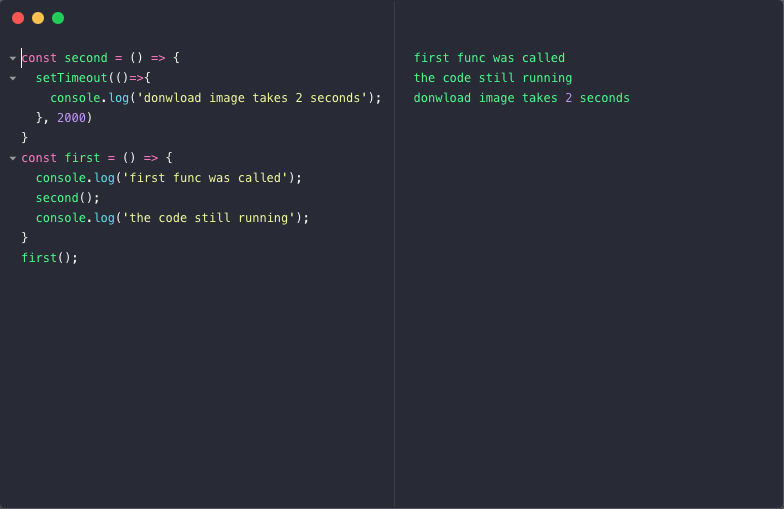원문 : https://dev.to/codeprototype/safely-parsing-json-to-a-typescript-interface-3lkj
User라는 JSON 문자열을 반환하는 REST API를 이용한다고 가정해보자. JSON API는 문자열형의 firstName과 lastName 그리고 number형인 accountBalance를 반환한다. User를 TypeScript를 사용해 아래와 같이 interface로 정의할 수 있다:
interface User {
firstName: string;
lastName: string;
accountBalance: number;
}
다음 코드는 JSON의 반환이 명시된 타입과 항상 일치한다고 하면 (happy path) 문제가 없다 :
const json = '{"firstName": "Kevin", "lastName": "Le", "accountBalance": 100}'
const user: User = JSON.parse(json)
하지만 API에서 에러가 발생할 수 있다. JSON 문자열이 다음과 같이 반환될 수 있다 :
const json '{"firstName": "Kevin", "lastName": "Le", "accountBalance": "100"}'
const user: User = JSON.parse(json)
console.log(user)
accountBalance가 number가 아니라 any로 취급되나 에러가 발생하지 않는다. 그러나 이런 "너그러운" 조취는 다른 문제의 발생을 야기한다:
const balanceAfterInterest = user.accountBalance + user.accountBalance * 0.05
console.log(balanceAfterInterest) //1005
balanceAfterInterest 는 105가 되어야 한다. 더 나은 접근법은 이 문제를 catch하고 바로 적절하게 처리해주어야 한다.
https://app.quicktype.io에 접속하여 왼쪽 패널에 {"firstName": "Kevin", "lastName": "Le", "accountBalance": 100} 입력한다. 이름에 User를 입력하고, Source type으로 JSON 을 선택한다.
우측에서 Language를 TypeScript로 선택하고 Verify JSON.parse results at runtime이 설정돼있는지 확인한다. Quicktype은 생성된 코드와 사용방법을 중앙에 보여준다.
다음 코드는 안전하게 작동한다:
import { Convert, User } from "./user";
const json =
'{"firstName": "Kevin", "lastName": "Le", "accountBalance": "100"}';
try {
const user = Convert.toUser(json);
console.log(user);
} catch (e) {
console.log("Handle error", e);
}// To parse this data:
//
// import { Convert, User } from "./file";
//
// const user = Convert.toUser(json);
//
// These functions will throw an error if the JSON doesnt
// match the expected interface, even if the JSON is valid.
export interface User {
firstName: string;
lastName: string;
accountBalance: number;
}
// Converts JSON strings to/from your types
// and asserts the results of JSON.parse at runtime
export class Convert {
public static toUser(json: string): User {
return cast(JSON.parse(json), r("User"));
}
public static userToJson(value: User): string {
return JSON.stringify(uncast(value, r("User")), null, 2);
}
}
function invalidValue(typ: any, val: any, key: any = ''): never {
if (key) {
throw Error(`Invalid value for key "${key}". Expected type ${JSON.stringify(typ)} but got ${JSON.stringify(val)}`);
}
throw Error(`Invalid value ${JSON.stringify(val)} for type ${JSON.stringify(typ)}`, );
}
function jsonToJSProps(typ: any): any {
if (typ.jsonToJS === undefined) {
const map: any = {};
typ.props.forEach((p: any) => map[p.json] = { key: p.js, typ: p.typ });
typ.jsonToJS = map;
}
return typ.jsonToJS;
}
function jsToJSONProps(typ: any): any {
if (typ.jsToJSON === undefined) {
const map: any = {};
typ.props.forEach((p: any) => map[p.js] = { key: p.json, typ: p.typ });
typ.jsToJSON = map;
}
return typ.jsToJSON;
}
function transform(val: any, typ: any, getProps: any, key: any = ''): any {
function transformPrimitive(typ: string, val: any): any {
if (typeof typ === typeof val) return val;
return invalidValue(typ, val, key);
}
function transformUnion(typs: any[], val: any): any {
// val must validate against one typ in typs
const l = typs.length;
for (let i = 0; i < l; i++) {
const typ = typs[i];
try {
return transform(val, typ, getProps);
} catch (_) {}
}
return invalidValue(typs, val);
}
function transformEnum(cases: string[], val: any): any {
if (cases.indexOf(val) !== -1) return val;
return invalidValue(cases, val);
}
function transformArray(typ: any, val: any): any {
// val must be an array with no invalid elements
if (!Array.isArray(val)) return invalidValue("array", val);
return val.map(el => transform(el, typ, getProps));
}
function transformDate(val: any): any {
if (val === null) {
return null;
}
const d = new Date(val);
if (isNaN(d.valueOf())) {
return invalidValue("Date", val);
}
return d;
}
function transformObject(props: { [k: string]: any }, additional: any, val: any): any {
if (val === null || typeof val !== "object" || Array.isArray(val)) {
return invalidValue("object", val);
}
const result: any = {};
Object.getOwnPropertyNames(props).forEach(key => {
const prop = props[key];
const v = Object.prototype.hasOwnProperty.call(val, key) ? val[key] : undefined;
result[prop.key] = transform(v, prop.typ, getProps, prop.key);
});
Object.getOwnPropertyNames(val).forEach(key => {
if (!Object.prototype.hasOwnProperty.call(props, key)) {
result[key] = transform(val[key], additional, getProps, key);
}
});
return result;
}
if (typ === "any") return val;
if (typ === null) {
if (val === null) return val;
return invalidValue(typ, val);
}
if (typ === false) return invalidValue(typ, val);
while (typeof typ === "object" && typ.ref !== undefined) {
typ = typeMap[typ.ref];
}
if (Array.isArray(typ)) return transformEnum(typ, val);
if (typeof typ === "object") {
return typ.hasOwnProperty("unionMembers") ? transformUnion(typ.unionMembers, val)
: typ.hasOwnProperty("arrayItems") ? transformArray(typ.arrayItems, val)
: typ.hasOwnProperty("props") ? transformObject(getProps(typ), typ.additional, val)
: invalidValue(typ, val);
}
// Numbers can be parsed by Date but shouldnt be.
if (typ === Date && typeof val !== "number") return transformDate(val);
return transformPrimitive(typ, val);
}
function cast(val: any, typ: any): T {
return transform(val, typ, jsonToJSProps);
}
function uncast(val: T, typ: any): any {
return transform(val, typ, jsToJSONProps);
}
function a(typ: any) {
return { arrayItems: typ };
}
function u(...typs: any[]) {
return { unionMembers: typs };
}
function o(props: any[], additional: any) {
return { props, additional };
}
function m(additional: any) {
return { props: [], additional };
}
function r(name: string) {
return { ref: name };
}
const typeMap: any = {
"User": o([
{ json: "firstName", js: "firstName", typ: "" },
{ json: "lastName", js: "lastName", typ: "" },
{ json: "accountBalance", js: "accountBalance", typ: 0 },
], false),
}; 




댓글 없음:
댓글 쓰기